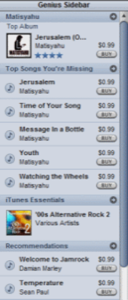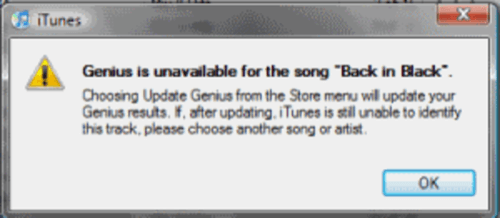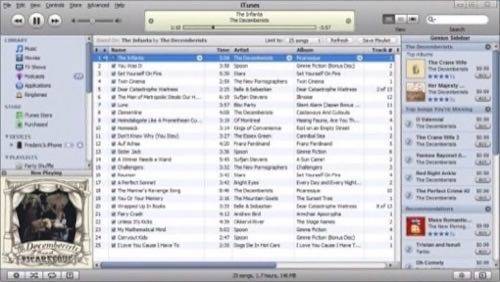Music discovery services are definitely a hot topic right now, with Pandora, Last.fm, imeem, and others vying for users. Yesterday, Apple joined the fray when it released iTunes 8 and its ‘Genius’ recommendation engine. After examining your iTunes library, iTunes uploads data about your library to Apple’s servers and returns back a set of information about how the songs in your library correlate to each other. Based on this, iTunes can now build playlists of similar songs and display shopping recommendations.

How Does it Work?
As is typical for Apple, the company is not exactly transparent when it comes to describing how the ‘Genius’ feature actually works. It looks as if Apple compares your music selection to that of other users and then builds its recommendations based on this. We assume that iTunes looks at data about play and skip counts, beats per minute (which is available for all songs in the iTunes store), ratings, and playlists.

Because these recommendations are at least partly based on the libraries of other iTunes users, iTunes periodically downloads updated recommendations. You can also force an update from the ‘Store’ menu.
One fact that surprised us was that Apple often returned playlists for songs that were clearly mislabeled, which has led us to speculate if Apple, during the first run of Genius, actually creates an acoustic fingerprint for every song.
According to Apple, all the uploaded information is anonymized.
Does it Work?
In our tests, the recommendations and playlists were often spot-on, but also a bit inconsistent. Sometimes we would get great recommendations based on songs from rather obscure bands, while we sometimes couldn’t get any recommendations based on songs from more popular and contemporary artists. For classical music, the recommendation feature basically didn’t work at all.
We also noticed that the recommendations tend to favor more popular mainstream artists, but that could easily be a function of the current user base.

Apple points out that the recommendation engine will get better over time, as more users start uploading their information. It would be nice, however, if Apple also gave users a chance to tweak settings for themselves or at least gave us more information about how these recommendations are calculated.
One minor annoyance when using the recommendations is that if you decide to build a Genius playlist based on a song that is already playing, iTunes starts the song over after creating the new playlist.
What about Last.fm and Pandora?
As Last.fm co-founder Marting Stiksel pointed out in an interview with Wired‘s Eliot Van Buskirk, the ‘Genius’ feature basically validates what other music recommendation services have been doing for a long time.
It’s also important to point out that a lot of other music recommendation services have strong, built-in social networking functions. Apple, even though it now has information about the listening habits of a large chunk of its users, does nothing to connect these users. One neat function, for example, would be for iTunes to show playlists from other users that have a certain songs in it. For now, though, it doesn’t seem as if Apple is interested in adding these social aspects to iTunes anytime soon.
Rediscovering Music
For now, when it works, Apple’s recommendations are actually a very nice way of rediscovering a lot of music that had long been sitting in our jukebox but never saw the day of light. We also assume that the shopping recommendations in the sidebar will drive more traffic to Apple’s music store, especially once the recommendations get a bit better and users get comfortable with trusting Apple’s recommendations.


















